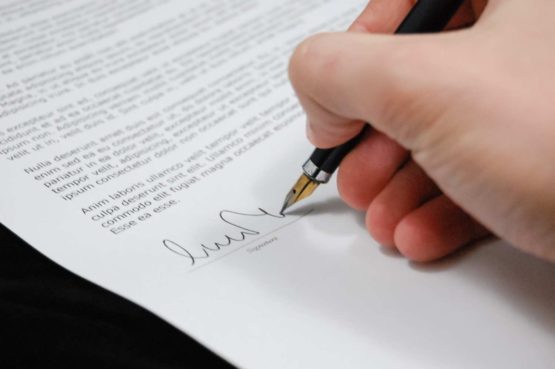Attending Formal Meetings at Work
Being invited to a formal meeting at work can be daunting.
However, it does not always end badly and how you conduct yourself during a formal process at work makes a difference.
In this article we explore some of the key issues and give advice on how to approach formal meetings at work. We also cover some of the common mistakes we see so you can avoid them.
We are addressing formal meetings generally, which would include:
Investigation meetings (as part of a grievance or disciplinary).
Grievance hearings.
Disciplinary hearings.
Long term absence meetings.
Contact Blair
If you need help with a settlement agreement, please contact Blair for a free and no-obligation discussion.
You can call on 0207 118 9218
Email at blair@blairtoner.com
Complete this FORM
Do I have the right to be accompanied?
A worker/employee has the right to be accompanied at a grievance or disciplinary hearing, at a meeting to discuss their right to work flexibly or at a meeting to discuss their right to request to study or train.
You are permitted to have another worker/employee, or a trade union representative attend the meetings with you (if you chose another worker/employee to attend with you, they also have the right to time off to attend).
Do I have the right to be accompanied at an Investigation Meeting?
Under section 10 of the Employment Relations Act 1999, you have the right to be accompanied to any meeting or hearing that can result in disciplinary action.
Where lots of companies do permit staff to be accompanied at an investigation meeting, the legal right does not apply, because an investigation meeting will not result in disciplinary action (although if a meeting is described as an investigation meeting, but there is clearly to be no further meetings and a sanction was given or may have been given, then the right to be accompanied may apply).
In each case, check the company policy and your contract (as the company policy may be contractual, although most are not).
The Acas guide to conducting workplace investigations advises that in most cases staff should be permitted to be accompanied.
Please also consider if you have a disability, which would place you at a disadvantage if you were not accompanied. If your employer is aware of the disability and the disadvantage, it may be a reasonable adjustment to let you be accompanied.
Do witnesses have the right to be accompanied?
If an internal process (for example a disciplinary or grievance) involves witnesses, then the witnesses do not have the right to be accompanied (there is a rare exception to this in certain regulated sectors where the witness may be implicating themselves in criminal conduct).
If my right to be accompanied is wrongfully refused, can I claim compensation?
Yes, there is a Tribunal claim, but the compensation is capped at two week’s gross pay (with the maximum weekly pay also being capped, this figure increases each year).
You do not require two year’s service to make this claim.
Therefore, if you are pulled into a meeting and dismissed, which more commonly happens when someone is on their probation or has less than 2 year’s service and your request to be accompanied is refused, then this claim is likely to apply.
The Acas Code of Practice
The Acas Code provides practical guidance on how to conduct formal meetings, particularly disciplinary and grievances.
A failure to follow the Acas Code does not necessarily mean there is a viable claim, but Tribunals will take the Acas Code into account when considering if a party has acted unreasonably, and in an unfair dismissal claim, it can impact on compensation.
The compensatory award can be increased by up to 25% (if the employer unreasonably fails to follow the Acas Code) or decrease it be 25% (if the employee fails to follow the Acas Code).
A common argument used to try and reduce the compensation to an individual is the failure to appeal the decision to dismiss.
Am I entitled to prior notice of Formal Meetings
There is not an absolute legal right to this as there is with the right to be accompanied.
We suggest you check the company policy (and your contract) first.
However, most employers will give prior notice to disciplinary and grievance hearings.
A failure to give a worker/employee notice of a disciplinary hearing, with full details of the allegations along with time to prepare, is likely to make any resulting dismissal, unfair.
However, the same principles do not apply to an investigation meeting. So as long as you do not have a contractual right to notice of the meeting, an employer is likely to be able to hold a formal investigation meeting without notice (an employer is entitled to conduct internal investigations).
Should formal meetings be recorded (notes/audio recordings)?
Most formal meetings will be recorded in some way.
There is no requirement to do so, but it is clearly good practice.
As it is difficult to conduct a meeting and keep accurate notes, the Company may have more than one person present. This does make the meeting feel much more serious, but it is likely to increase the accuracy of the notes.
Should I take my own notes of record the formal meetings?
If there is a note taker present, it may be easier to check they have made an accurate note instead.
However, if something important arises, it makes sense to note this down yourself.
In advance, check the company policy on note taking and recording meetings.
If you covertly record a meeting, it may be deemed a disciplinary.
Covert recordings can cause issues, so caution is recommended. However, if you record something important that your employer later denies / is not visible in the formal notes, this can be useful. Tribunals are often willing to listen to covert recordings of meetings (this is not the same as a planted device, that records others whilst you are not present, which are unlikely to be used).
General Guidance when attending a Formal Meeting
Here is some general guidance if you have been invited to attend a formal meeting.
Even if you fear the outcome is pre-determined, it is best to attend with an open mind and with the belief the purpose of the meeting is genuine and fair.
The benefit of this mindset is that your participation in the meeting will be more effective. If the meeting is held on genuine grounds, then you will be more persuasive, and your version will be understood. This increases the likelihood of the outcome going in your favor.
If the meeting is pre-determined and conducted as a box-ticking exercise, then you will be reflected much more positively in the meeting minutes/recording, which may be important at a later stage.
Some common mistakes we see are:
- Individuals avoid attending all formal meetings. If you fail to participate in the process, the Company may be able to use this against you, for example, by twisting the narrative and suggesting the issues were created/made worse by your failure to attend meetings / be cooperative.
- Individuals attend meetings and their comments focus on why they feel the process is unfair and unjust. This is a particular issue in disciplinary proceedings, where individuals fail to properly address the allegations they face. If you are being accused of something you deny, it is important your reasons as to why you are not guilty of the alleged misconduct are clearly put across. This is much more important than making a big issue of the fact you were given 2 days’ notice of the meeting rather than 3 days (for example). However, we suggest you keep a timeline of the process, to include a list of the mistakes/unfair treatment received, which may be useful later.
- Being signed off work, but not signed off to attend meetings. If you are too unwell to attend meetings, make sure this is reflected in your sick certificate. Being signed off work does not necessarily mean you are too unwell to attend a meeting. Some employers will make this distinction (they will argue they are not asking you to work, but to attend a short meeting). You can prevent this from happening by getting signed off work and meetings (only get signed off if this is genuine).
- Individuals being confused about their right to be accompanied and advance notice of meetings. This is most common with investigation meetings. Unlike a disciplinary hearing (where the result can be a disciplinary sanction) there is no legal right to be accompanied. The same goes for prior notice of the meeting. Although it is often good practice, and lots of employers do give advance notice (and afford the right to be accompanied) to investigation meetings, there is not the same onus to do this as there is with a formal disciplinary hearing, for example. We suggest you check the Company policy (and your contract) and you can of course (politely) ask that the policy/contract is adhered to (if you would prefer to be accompanied, simply asking may result in this being agreed. What not to do is refuse to attend investigation meetings because you were not given advance notice or the right to be accompanied (see the first bullet point above). It is ok to let your employer make mistakes on the “process,” of course within reason, because you may be able to use this against the employer later.
- “Lawyering up” too early. Taking legal advice to guide you through a difficult internal process is often a good idea, but this should be done “behind the scenes.” It is rarely a good idea to get lawyers involved too early or to threaten your employer with legal action too readily. You want your employer to underestimate you, make mistakes, and not lawyer up themselves. If you make clear you are taking legal advice / threaten legal action, then your employer is likely to do the same, which may result in the process they follow being harder to criticise and any negotiations being harder to progress. It also does not come across well in meeting notes / requirements if you appear confrontational / litigious.
We hope these points help you navigate any formal process you face, which are difficult and stressful at the best of times. If you adopt the points above and avoid common mistakes, the outcome is more likely to be positive for you.
Contact Blair
If you need help with a settlement agreement, please contact Blair for a free and no-obligation discussion.
You can call on 0207 118 9218
Email at blair@blairtoner.com
Complete this FORM
Disclaimer
This blog is for information purposes only. Nothing should be relied upon as a substitute for legal advice and nothing written should be construed as legal advice or perceived as creating a lawyer-client relationship.
What Clients Say…
"Blair Toner is an outstanding employment law resource. I have instructed him in every type of employment tribunal hearing and am always impressed by his level of preparation and service offered."
Chris Cook, Head of Employment, Partner“I have instructed Blair Toner in a wide range of employment matters. Having witnessed Blair in action at the employment tribunal, I have first-hand experience of his abilities and skills. His attention to detail and knowledge of the minutest details of the legislation is most impressive, and is what makes him stand out as one of the best advocates I have instructed.”
Aarti Jagpal, Solicitor“Blair represented us in an Employment Tribunal claim from start to finish, including acting as our Advocate at the Trial. At all times Blair was extremely reassuring and professional in guiding us through the process and ensuring that we presented our strongest case. It was great to work with him and he represented us excellently."
Kuhrt, Executive Director, West London Mission
"Blair Toner is an outstanding employment law resource. I have instructed him in every type of employment tribunal hearing and am always impressed by his level of preparation and service offered."
Chris Cook, Head of Employment, Partner“I have instructed Blair Toner in a wide range of employment matters. Having witnessed Blair in action at the employment tribunal, I have first-hand experience of his abilities and skills. His attention to detail and knowledge of the minutest details of the legislation is most impressive, and is what makes him stand out as one of the best advocates I have instructed.”
Aarti Jagpal, Solicitor“Blair represented us in an Employment Tribunal claim from start to finish, including acting as our Advocate at the Trial. At all times Blair was extremely reassuring and professional in guiding us through the process and ensuring that we presented our strongest case. It was great to work with him and he represented us excellently."
Kuhrt, Executive Director, West London Mission












